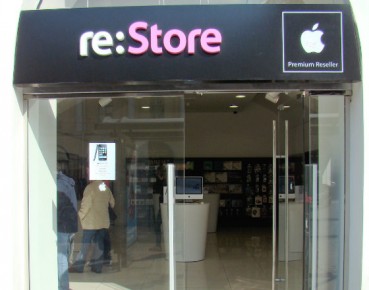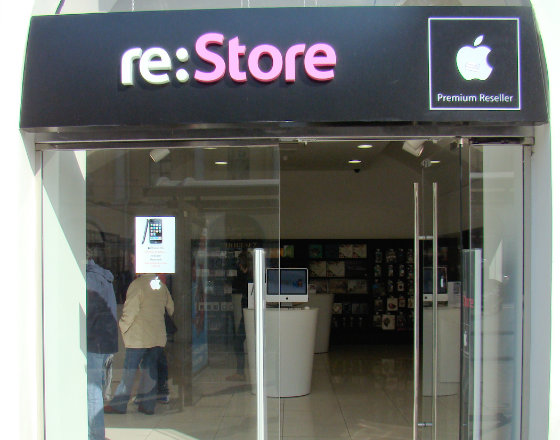Tydzień w gospodarce
Category: Trendy gospodarcze

Saint Petersburg, Russia (Joe Pemberton, CC BY-NC-ND 2.0)
The latest piece of legislation, colloquially referred to as “the law against Apple”, is a part of the “sovereign internet” package, and was discussed in the lower house of the Federal Assembly of Russia (State Duma) in early November, and then passed with an overwhelming support. There were two further readings of the proposed legislation, both in November, and both easily overcame the first hurdle of the Russian legislation process.
After lawmakers from the State Duma expressed their support, the law was sent to the Presidential Office for a final approval. Formally, the proposed piece of legislation took the form of an amendment to the existing consumer protection law. After presidential approval it is supposed to take effect on July 2020.
However, even after the so called “anti-Apple law” got a green light from Russia’s highest political authority, there were still a lot of question marks around the actual implementation of it. For example, it wasn’t really clear what sort of Russian made application are to be pre-installed on electronic devices sold in Russia, such as smartphones, tablets, smart TVs and computers.
On January 2020, the Russian Federal Anti-Monopoly Service organized a meeting of working group on information technologies. The experts drafted a document outlining the basis on which the apps will be chosen.
As far as mobile phones are concerned, the law will target software such as anti-virus programs, maps, search engines, social networks, voice assistants and online payment platforms. For computers, tablets and smart TVs, the measure will also concern audiovisual services, applications and mandatory broadcasting of 20 public channels.
Manufacturers of smartphones sold in Russia will be the first ones who will have to grapple with the legal changes. Producers of tables and other portable devices will have until July 2021 to adjust, computers until July 2022, and Smart TVs until July 2023.
The complete and final list of all allowed software will be drafted by the Federal Anti-Monopoly service in collaboration with the Ministry of Communications and the Federal Service for the Oversight Consumer Protection and Welfare. It will then have to get a final approval from the government, the document says.
However, certain specifications have already been made. Software allowed to be installed on electronic devices will have to be made in Russia, compatible with the operation system of the sold device, available to users free of charge, and without undeclared (hidden) features.
Russia’s Federal Anti-Monopoly service informed that there will be three main categories that will help guide the selection process. Applications allowed to be pre-installed on devices will be chosen on the basis of the following criteria:
Responsibility for complying with the law lies with the manufacturers. If, for whatever reason, they cannot comply then distributors and sellers will be assigned the responsibility.
According to the authors of the legislation, the law is supposed to allow Russian internet users access to domestic applications. “The bill is aimed at providing Russian internet and communication services users with the opportunity to use the purchased equipment (smartphones, computers, televisions with the Smart TV function) without the need to install additional applications specifically made for Russian users,” the explanatory note to the document says.
The idea of pre-installing Russian software on gadgets that are imported into the country first appeared in the roadmap for developing competition in the IT field, which the Federal Antimonopoly Service (FAS) introduced in September 2018. The measure, according to the department, was to „ensure equal conditions for the Russian market to operate on the market and protect the interests of consumers.”
However, according to the information obtained by Russian business daily The Bell, there might be different motivations at play. One of the officials The Bell spoke to said that the Federal Antimonopoly Service (FAS), which was the first to come up with this proposal, made an argument not exactly based on an antitrust perspective.
“They expressed concern about information about Russians being collected by foreign applications, the producers of which might have undeclared interests — for example, they can eavesdrop. If the same information will be collected by Yandex or other Russian companies, it will at least remain in the country,” the anonymous source told The Bell.
A Samsung representative told another Russian business daily, Vedomosti, that the company is ready to comply with the law, but wouldn’t comment on its implementation “until the procedure and areas of responsibility are clearly spelled out.” He added that the manufacturer already has experience with pre-installing Russian software, for example, Yandex.Maps on smartphones.
Similarly accommodating sounded the representative of the Chinese tech giant Huawei. “In general, we are glad to cooperate with Russian software developers and are actively developing our own AppGallery application store. As for pre-installed applications, we are working on it and striving to find the optimal solution for all market participants,” Huawei’s spokesperson told Vedomosti.
The American tech company Apple has so far shown much less willingness to cooperate. According to The Bell, Apple has been in contact with Kremlin officials and warned that the company might „revise its business model in Russia.” So far Apple has not released any official statement regarding the change in Russian legislation.
Filip Brokeš is an analyst and a journalist specializing in international relations.



